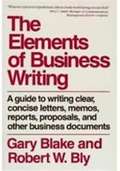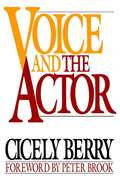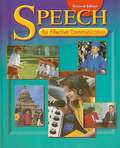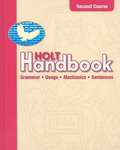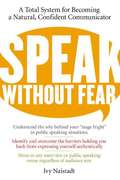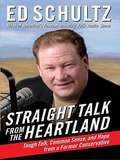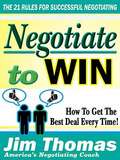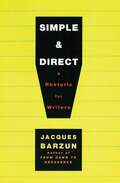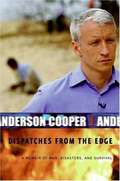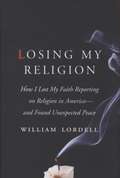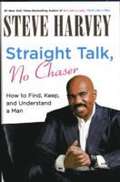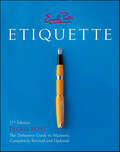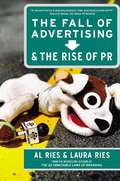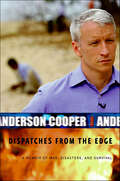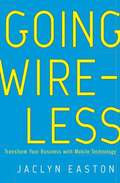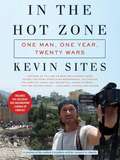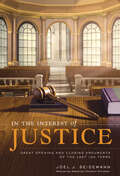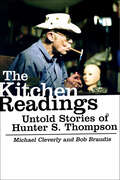- Table View
- List View
Chronicles Of Wasted Time: Part I: The Green Stick
by Malcolm MuggeridgeChronicles of Wasted Time Part I The Green Stick
The Elements of Business Writing
by Robert W. Bly Gary BlakeFrom an interoffice memo to a fifty-page proposal, this is the definitive guide to business writing. Anyone who has ever had to write any business document will find "The Elements of Business Writing" the single most effective tool for producing clear, concise, and persuasive prose. Equally useful to executives and support staff, it shows how to: write clearly and powerfully; rid writing of jargon and pompous language; organize material effectively; and avoid errors in spelling, grammar, and usage.
Voice and the Actor
by Cicely BerryThere is no right way--there are only a million wrong ways, which are wrong because they deny what would otherwise be affirmed. Wrong uses of the voice are those that constipate feeling, constrict activity, blunt expression, level out idiosyncrasy, generalize experience, coarsen intimacy. These blockages are multiple and are the results of acquired habits that have become part of the automatic vocal equipment; unnoticed and unknown, they stand between the actor's voice as it is and as it could be and they will not vanish by themselves. So the work is not how to do but how to permit: how, in fact, to set the voice free. And since life in the voice springs from emotion, drab and uninspiring technical exercises can never be sufficient. Cicely Berry never departs from the fundamental recognition that speaking is part of a whole: an expression of inner life.
Glencoe Speech: Student Edition
by McGraw-Hill EducationGlencoe Speech covers a full range of speech topics including interpersonal communication, listening, interviewing, extemporaneous speaking, preparing and presenting speeches, debate, and parliamentary procedure. The text emphasizes that communicating also entails making responsible ethical choices. Features and activities throughout Glencoe Speech help students gain the skills and confidence they need to overcome obstacles and succeed in their efforts to communicate effectively. Sample student speeches are provided thoughout as well as speeches from some of history’s greatest speakers.
Semantics and Communication
by John C. Condon Jr.New to the third edition is an exploration of creativity and problem solving in terms of semantics.
The Complete Idiot's Guide to Publishing Science Fiction
by Cory Doctorow Karl SchroederYou'd like to write science fiction. Maybe you already write the stuff but haven't had any sales yet. This section can help you start out on the road to success. <P><P> There are two things you must accomplish to become a successful SF writer: become a writer of entertaining and thought-provoking stories, and market those stories successfully to a large audience. <P><P> We'll look at how you can take steps toward both these goals, by easing you into the process of writing, and showing you how to plug into the SF writing and reading communities. <P><P> The author of this book donated a digital copy to Bookshare.org. Join us in thanking Cory Doctorow for providing his accessible digital book to this community.
Elements of Writing Third Course
by James L. Kinneavy John E. WarrinerA language arts textbook covering the following areas in three parts: PART 1 Writing PART 2 Handbook PART 3 Resources
Speech For Effective Communication
by Holt Rinehart Winston StaffSpeech For Effective Communication includes a number of topics to help the students throughout the syllabus. The main topics are The Communication Process, Interpersonal Relationships, Public Speaking, Democratic Processes among others.
Holt Handbook Grammar: Usage, Mechanics, Sentences (Second Course)
by John E. WarrinerThis book gives the tools to understand and discuss our own language, to communicate clearly the things we want to communicate, and to develop our own communication style.
Speak Without Fear: a Total System for Becoming a Natural, Confident Communicator
by Ivy NaistadtFor many of us, public speaking is at best a chore marked by great anxiety and at worst a potential career stopper. Ours is a time when the ability to communicate in front of individuals or groups in all types of business and other situations is becoming paramount. Speak Without Fear offers a unique, practical process for combating the stage fright that plagues us every day in these situations. Unlike other books on public speaking, Speak Without Fear goes beyond the external techniques, such as how to breathe properly and keep eye contact, to delve deeply into the reason for your performance anxiety. It gets to the root of what's giving you the sweats so you can identify what's in the way and work through it to communicate naturally and comfortably before audiences of any size. Ivy Naistadt's easy-to-follow, step-by-step program will help you: Identify the degree and type of your nervousness, pinpoint the incidents and issues that, directly or indirectly, cause you fear and loathing in the spotlight, develop and master a technique for over-coming your anxiety that's adaptable to your level of experience and need, and use your new skills to shine in a variety of situations. whether speech making, interviewing, auditioning, or presenting No matter how anxious you are about going before an audience -- any audience, whether it's 1 or 1,000 -- Speak Without Fear will give you the tools to speak powerfully and persuasively.
Straight Talk from the Heartland: Tough Talk, Common Sense, and Hope from a Former Conservative
by Ed SchultzThe author transformed his political beliefs after a visit to a Salvation Army shelter and then became a popular liberal radio talk show host. Here he offers his views on international relations, freedom of the press, the federal deficit, struggling rural America, public education, trade policy, and more. He outlines what he calls the "Four Pillars of a Great Nation" as well as asserts that the current US government is run by and for the rich.
Negotiate to Win: The 21 Rules for Successful Negotiating
by Jim ThomasNegotiation is one skill everyone needs in order to get more of what they want-to sell more, to earn more, to keep costs down, to manage better, and to strengthen relationships. In Negotiate to Win, master negotiator Jim Thomas shows you exactly how the best negotiators reach long-lasting, positive solutions-ones that build profits, performance, and relationships-with his 21 rules for successful negotiating. Learn how to overcome your natural reluctance to bargain, how to negotiate ethically (and deal with those who don't), and how to negotiate successfully across cultural lines. Negotiate with your boss, your children, your auto mechanic, and more. Once you learn how to negotiate to win, you'll always get the best deal.
Simple and Direct
by Jacques BarzunAfter a lifetime of writing and editing prose, Jacques Barzun has set down his view of the best ways to improve one's style. His discussions of diction, syntax, tone, meaning, composition, and revision guide the reader through the technique of making the written word clear and agreeable to read. <p><p>Exercises, model passages both literary and casual, and hundreds of amusing examples of usage gone wrong show how to choose the right path to self-expression in forceful and distinctive words.
Dispatches from the Edge: A Memoir of War, Disasters, and Survival
by Anderson CooperFew people have witnessed more scenes of chaos and conflict than Cooper, whose groundbreaking coverage on CNN has changed the way we view the news.
Losing My Religion: How I Lost My Faith Reporting on Religion In America--and Found Unexpected Peace
by William LobdellLobdell's journey of faith -- and doubt -- is a book about life's deepest questions that speaks to everyone: the author understands the longings and satisfactions of the faithful, as well as the unrelenting power of doubt. How he faced that power, and wrestled with it, is must reading for people of faith and nonbelievers alike.
The Longest Trip Home: A Memoir
by John GroganAutobiography of the author of "Marley and Me", about his Catholic upbringing outside Detroit in the 60s and 70s, a book about mortality and grace, spirit and faith, and the powerful love of family.
Straight Talk, No Chaser: How to Find, Keep, and Understand a Man
by Steve HarveyIn the instant number one New York Times bestseller Act Like a Lady, Think Like a Man, Steve Harvey gave millions of women around the globe insight into what men really think about love, intimacy, and commitment. In his new book he zeros in on what motivates men and provides tips on how women can use that knowledge to get more of what they need out of their relationships, whether it's more help around the house, more of the right kind of attention in the bedroom, more money in the joint bank account, or more truth when it comes to the hard questions, such as: Are you committed to building a future together? Does my success intimidate you? Have you cheated on me? In Straight Talk, No Chaser: How to Find, Keep, and Understand a Man, Steve Harvey shares information on: How to Get the Truth Out of Your Man * Tired of answers that are deceptive? Harvey lays out a three-tier, CIA-style of questioning that will leave your man no choice but to cut to the chase and deliver the truth. Dating Tips, Decade by Decade * Whether you're in your twenties and just starting to date seriously, in your thirties and feeling the tick of the biological clock, or in your forties and beyond, Steve provides insight into what a man, in each decade of his life, is looking for in a mate. How to Minimize Nagging and Maximize Harmony at Home * He said he'd cut the lawn on Saturday, and you may have been within reason to think that that meant Saturday before ten in the evening, but exploding at him is only going to ruin the mood for everyone, which means no romance. Steve shows you how to talk to your man in a way that moves him to action and keeps the peace. And there's much more, including Steve's candid answers to questions you've always wanted to ask men. Drawing on a lifetime of experience and the feedback women have shared with him in reaction to Act Like a Lady, Think Like a Man, Harvey offers wisdom on a wealth of topics relevant to both sexes today. He also gets more personal, sharing anecdotes from his own family history. Always direct, often funny, and incredibly perceptive, media personality, comedian, philanthropist, and (finally) happily married husband, Steve Harvey proves once again that he is the king of relationships.
Emily Post's Etiquette: The Definitive Guide to Manners
by Peggy Post“[A] compendium of socially acceptable responses to every conceivable opportunity for personal embarrassment or inadvertent insult.” —Publishers WeeklyRead by millions since the first edition was published in 1922, Emily Post—the most trusted name in etiquette—has always been there to help people navigate every conceivable social situation. The tradition continues with this 100 percent revised and updated edition, in which Peggy Post covers the formal, the traditional, the contemporary, and the casual. Based on thousands of reader questions and surveys, the book shows how to handle the new, difficult, unusual, and everyday situations we encounter. The definition of etiquette—a code of behavior based on thoughtfulness—has not changed since Emily’s day. The etiquette guidelines we use to smooth the way change all the time. This new edition resolves hundreds of our key etiquette concerns: dealing with rudeness, netiquette, noxious neighbors, road rage, family harmony, online dating, cell phone courtesy, raising respectful children and teens, and travel etiquette in the post-9/11 world . . . to name just a few.Emily Post's Etiquette, 17th Edition also remains the definitive source for timeless advice on entertaining, social protocol, table manners, guidelines for religious ceremonies, expressing condolences, introductions, how to be a good houseguest and host, invitations, correspondence, planning a wedding, giving a toast, and sportsmanship. Peggy Post's advice gives us the confidence of knowing we're doing the right thing so we can relax and enjoy the moment—and move more easily through our world.
The Fall of Advertising and the Rise of PR
by Al Ries Laura RiesBestselling authors and world-renowned marketing strategists Al and Laura Ries usher in the new era of public relations. Today's major brands are born with publicity, not advertising. A closer look at the history of the most successful modern brands shows this to be true. In fact, an astonishing number of brands, including Palm, Starbucks, the Body Shop, Wal-Mart, Red Bull and Zara have been built with virtually no advertising. Using in-depth case histories of successful PR campaigns coupled with those of unsuccessful advertising campaigns, The Fall of Advertising provides valuable ideas for marketers -- all the while demonstrating why advertising lacks credibility, the crucial ingredient in brand building, and how only PR can supply that credibility; the big bang approach advocated by advertising people should be abandoned in favor of a slow build-up by PR; advertising should only be used to maintain brands once they have been established through publicity.Bold and accessible, The Fall of Advertising is bound to turn the world of marketing upside down.
Dispatches from the Edge: A Memoir of War, Disasters, and Survival
by Anderson CooperOne of America’s leading reporters shares a deeply personal, extraordinarily powerful look at the most volatile crises he has witnessed around the world.A #1 New York Times BestsellerAnderson Cooper’s groundbreaking coverage on CNN has changed the way we watch the news. Few people have witnessed more scenes of chaos and conflict around the world. In this gripping, candid, and remarkably powerful memoir, he offers an unstinting, up-close view of the most harrowing crises of our time, and the profound impact they have had on his life—from the tsunami in Sri Lanka to the war in Iraq, from the starvation in Niger to the tragedy of Hurricane Katrina in New Orleans and Mississippi.Striking, heartfelt, and utterly engrossing, Dispatches from the Edge is an unforgettable story from one of America’s most trusted, fearless, and pioneering reporters.Praise for Dispatches from the Edge“A smart, soulful page-turner. . . . Cooper is a storyteller with plenty of heart.” —People“From the shores of Sri Lanka to the chaos of Hurricane Katrina, Cooper weaves his experiences at CNN into a moving memoir.” —Newsweek“His vignettes from the world’s horrscapes rise above the swagger of many journalistic memoirs because Cooper writes with competence as well as feeling.” —Washington Post Book World“Anderson Cooper gets New Orleans. . . . This is an emotional, personal reckoning with what he’s seen.” —New Orleans Times-Picayune
For the Love of Letters: A 21st-Century Guide to the Art of Letter Writing
by Samara O'Shea&“For the Love of Letters could transform the most technologically addicted among us into old-fashioned letter writers.&” —Samantha Ettus, creator of The Experts&’ Guide book series Have you ever wanted to write a thank-you note and suffered writer's block? Considered penning a passionate letter to your beloved, but had no idea where to begin? Needed to send a sympathy message, but couldn't find the right words? Fear not. Professional letter writer Samara O'Shea is here to spark your creativity and answer all your letter-writing questions in this charming guide. For the Love of Letters is an anecdotal primer on letter writing, with tips on how to write all types of notes: love letters, break-up letters, apology letters, thank-you letters, erotic letters (oh yes!), and more. It's filled with moving, funny, and embarrassing stories about letters Samara has written and received, including an apology from a guy who addressed her by the wrong name, a good-riddance e-mail to a capricious boyfriend, and multiple apology letters after getting fired from an internship at O: The Oprah Magazine. With a fresh, contemporary approach, Samara weighs in on appropriate methods for every situation—for example, when to handwrite, type, or e-mail (yes, e-mail) your letter. There is also a fascinating collection of engaging personal letters written by historical and literary icons such as Marie Antoinette, Beethoven, Edgar Allan Poe, Susan B. Anthony, and Emily Post. For the Love of Letters will show anyone who has ever shuddered at the idea of sitting down and putting pen to paper—or fingertips to keyboard—how to craft persuasive, interesting, and memorable letters.
Going Wireless
by Jaclyn EastonGoing Wireless delivers the unexpected by showing how wireless is transforming every type of enterprise from micro-businesses to multi-national conglomerates.Award-winning technology journalist Jaclyn Easton begins with an in-depth look at owning your customers and clients through mobile commerce-whether your company focuses on consumers or business-to-business.From there you will learn about the advantages of wirelessly fortifying your mobile workforce of itinerant executives, sales personnel, and field service technicians as well as how wireless is dramatically redefining customer service, marketing, and advertising.Going Wireless also delves deep inside the corporation. First you'll find out why most companies are "handsizing" in addition to deploying wireless technology to rejuvenate warehouses, supply chains, procurement procedures, data collection, competitive intelligence, and much more.The best part is that these scenarios are supported by over 40 brand-name success stories, including:How Sears saves millions by wirelessly enabling 100 percent of their appliance repair technicians;How the Gap proved that by sewing wireless technology in their clothing they could reduce labor distribution costs by 50 percent;How McKessanHBOC-a Fortune 40 corporation-used mobile technology to entirely eliminate all their manifest imaging costs.While most people associate wireless with cell phones and Palm handhelds, you'll also learn that wireless has been around for over 100 years and has spawned mobile options you've never heard of and is being used in ways you've never imagined.This makes Going Wireless the perfect book for executives and managers who need a comprehensive overview of the wireless options that can make their companies more competitive, more productive, and more profitable.
In the Hot Zone
by Kevin SitesKevin Sites is a man on a mission. Venturing alone into the dark heart of war, armed with just a video camera, a digital camera, a laptop, and a satellite modem, the award-winning journalist covered virtually every major global hot spot as the first Internet correspondent for Yahoo! News. Beginning his journey with the anarchic chaos of Somalia in September 2005 and ending with the Israeli-Hezbollah war in the summer of 2006, Sites talks with rebels and government troops, child soldiers and child brides, and features the people on every side, including those caught in the cross fire. His honest reporting helps destroy the myths of war by putting a human face on war's inhumanity. Personally, Sites will come to discover that the greatest danger he faces may not be from bombs and bullets, but from the unsettling power of the truth.
In the Interest of Justice: Great Opening and Closing Arguments of the Last 100 Years
by Joel J. SeidemannThis rich and rewarding volume collects more than two dozen of the most memorable opening and closing arguments made by top prosecutors and defense attorneys of the last one hundred years. Carefully selected to explore every major aspect and challenge of the legal process, these speeches highlight the tactics and strategies, colorful language, and stirring rhetoric that lawyers use to win judge and jury to their side. With a shrewd eye for courtroom stratagems and a keen understanding of the social currents that shape them, Manhattan assistant district attorney Joel Seidemann introduces and illuminates each speech from an insider's perspective. Arguments from landmark trials are included to reveal the smartest tricks of the trial lawyer's trade and demonstrate the power of an impassioned presentation to tip the scales toward the fulfillment of justice.
The Kitchen Readings: Untold Stories of Hunter S. Thompson
by Michael Cleverly Bob BraudisWarning!* This book contains the following:Unsafe use of powerful firearms in combination with explosivesCultivation of illegal crops Impressionable minors being exposed to illicit activitiesPiloting of automobiles under impaired conditionsTransporting large sums of cash across national borders*Stunts performed in this book were undertaken by professionals. Do not attempt them at home.

